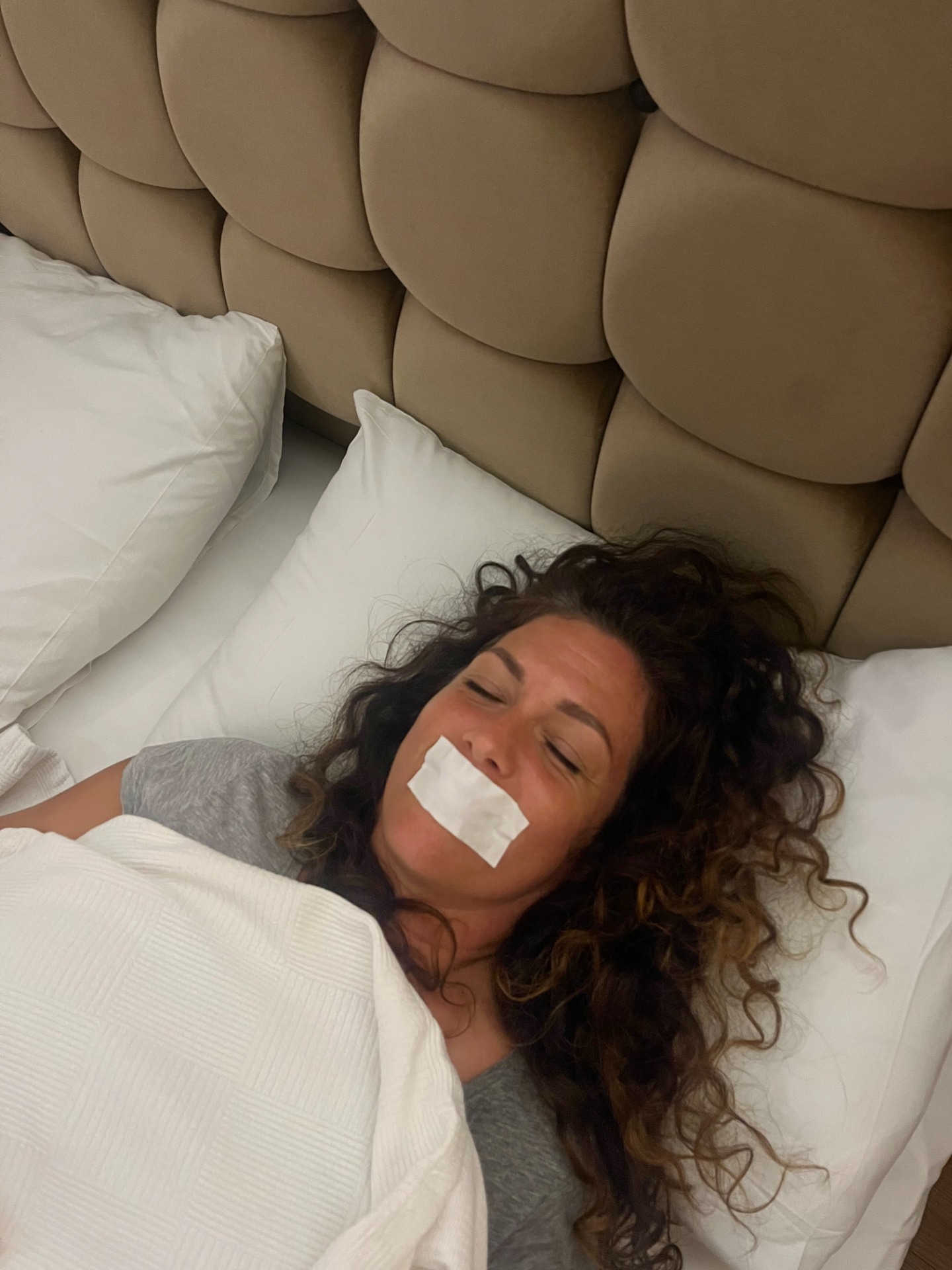Why is it healthy to breathe through your nose at night?
Did you know that mouth breathing can increase the amount of cavity-causing bacteria, Streptococcus mutans, by up to four times?
The way we breathe during sleep has a much greater impact on our health than most people realize. While mouth breathing is a common but unhealthy habit, nose breathing is natural for our body and brings many health benefits.
What happens when we breathe through the mouth?
-
The mucous membranes in the mouth dry out, creating the perfect environment for bacteria growth and tooth decay.
-
Sleep becomes restless, often accompanied by snoring.
-
The body receives less oxygen, which can lead to fatigue and drowsiness even after a full night's sleep.
And what are the benefits of nose breathing at night?
Better oral hygiene and dental health
Nose breathing keeps the mouth naturally moist and balanced, while mouth breathing promotes cavities, bad breath, and gum disease.
More efficient oxygenation of the body
The nasal passages produce nitric oxide (NO), which improves blood vessel dilation and oxygen transport throughout the body. As a result, we wake up feeling more rested and energized.
Better quality sleep
Nose breathing supports slower, deeper, and more regular breaths. This helps the body relax, reach deeper stages of sleep, and regenerate.
Stronger immunity
The nose is our natural filter – it traps bacteria, viruses, dust, and allergens that would otherwise enter directly into the lungs through mouth breathing.
Less snoring and apnea
Nose breathing keeps the tongue in the correct position and reduces the risk of snoring and sleep apnea, which has a positive impact not only on sleep but also on heart and vascular health.
How to support nose breathing at night?
If you notice that you often sleep with your mouth open, you can try:
-
Conscious practice during the day – pause several times to check if you're breathing through your nose.
-
Rinse your nose with saline water – it helps keep the airways clear.
Mouth taping – a gentle medical tape across the mouth (special medical tapes are available) that encourages nose breathing during sleep.
Learn how to use mouth tape
Contrary to what most of us imagine when we hear "mouth taping" – suffocating under a big piece of duct tape – a small strip of flexible medical tape works perfectly. For example Nexcare Sensitive Skin Tape.
Apply the tape vertically – a small piece from just under the nose (above the upper lip) to just below the lower lip (about halfway down the chin). Applied this way, the tape still allows for breathing through the sides of the mouth if needed during the night. Over time, it becomes easier and easier, and a smaller piece of tape is enough.
Have you ever tried taping your mouth at night? What did you notice?
If you'd like to dive deeper into the topic of breathing, I recommend these books:





